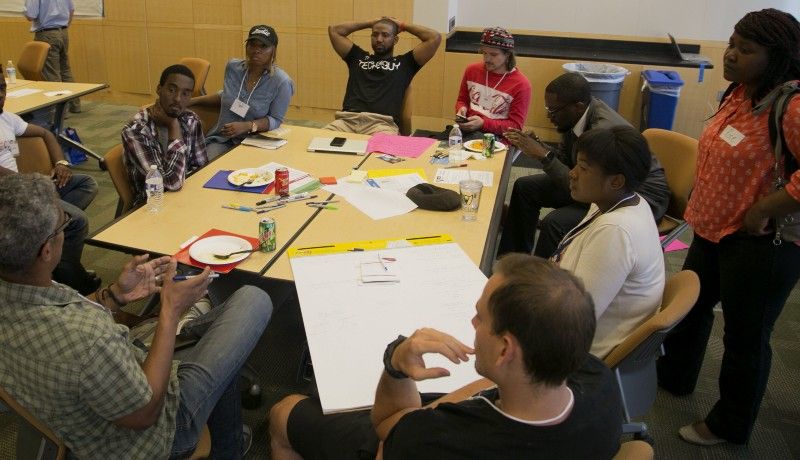Making Government Work with Bots & Hacking
Angelina Bethoney created a bot that tweets legislation being worked on in Massachusetts. But she didn’t stop there. She made it a remixable template on Glitch, and the response she got when she shared the project was amazing!
As co-organizer of Botwiki, Bethoney helps lead a community of passionate makers who create all manner of weird and wonderful bots across platforms like Twitter, Messenger, Slack, Mastodon, and others.
But when she tweeted about her law bot template, which makes it easy for anyone to make a bot that tweets legislation in any state, it took off 🚀
Over the next few days, folks started remixing the bot, making tweaks, suggesting edits, and discussing the legislation being tweeted about. Even more exciting though is that these bot creators weren’t necessarily software developers. They were just folks with a passion for local government and a desire to better understand the changes being voted on and legislation being brought in around them.
For many it was their first time making a bot. For some it was their first time coding at all. But having a great template project to work from helped — and a few tweets quickly brought any additional help needed as the community rallied to support each other.
So far, bots have been created for 19 states right across the country from California to New York. Alex Martin even put together a master list to help people keep track of what bots have been created and for where.
Under-the-hood the bots are using the Open States API to get the list of legislation currently being worked on. But, “you can make a bot that tracks certain types of bills, or tracks particular sponsors — whatever you want,” says Bethoney.
“I’m really excited that people are not only making these bots but are taking a critical look at what these bills actually are”.
Indeed a number of people quickly noticed how much quicker bills about sick banks and commendations for government employees seemed to be passed through than other types. “For me, the point of this project was to not only bring awareness of the current [legislation] but to see patterns of the past as well,” adds Bethoney. And by following the law bots you do quickly get a sense of these patterns when you’re able to see what bills are being proposed and how they progress.

As Code for America says “Government works best when it’s government by the People.” And what these law bots show is not only how people can leverage technology to make Government more accessible, but how it really is something that anyone can help with— you don’t need to be an expert developer.
Code for America’s upcoming National Day of Civic Hacking is a great way to get involved with local government, regardless of your technical skill level. This weekend, August 11th 2018, you can join the Code for America Brigades for a nationwide day of action that brings together civic leaders, local governments, and community organizations to tackle some of our toughest challenges.
Events are being run across the country. There are Hackathons where people come in with ideas for an app and create prototypes at the event. There are City Camps, which are unconference events to discuss local problems and find connections to solve them. And there are Design Camps — user-centered events to reimagine government services.
Learn more about the National Day of Civic Hacking and check out Botwiki’s extensive range of bot template projects on Glitch that you can remix.
We can’t wait to see what you create! 🎏🎇

